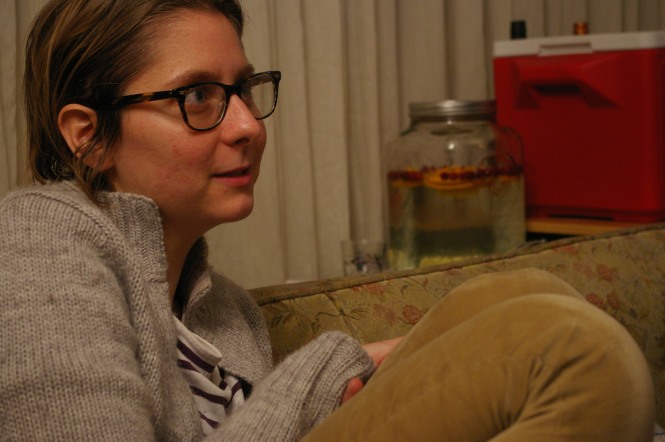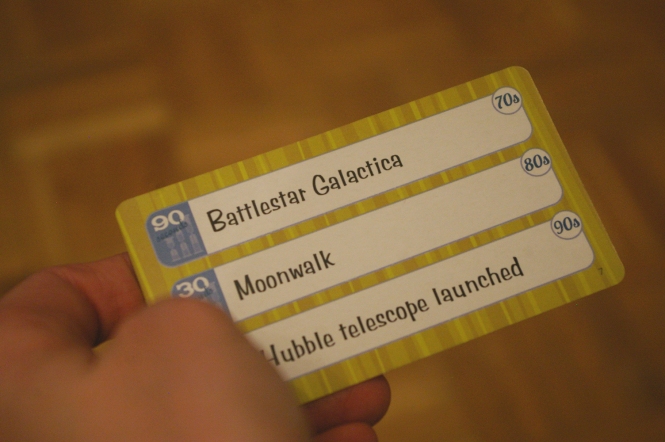In the first half of this article, we looked at some ways to improve your Charades game through thoughtful acting. Now we’re going to turn our attention to the other part of the game: guessing. The best acting job in the world wouldn’t get you anywhere without a focused guesser, so perk up and pay attention!
PART 2: GUESSING
Focus
While actors may panic and flounder, guessers are often at risk of getting distracted. This is, after all, a party game, and there’s a reasonable chance that there may be drinks and snacks around to steal your attention. The last group’s clue might have been so funny you can’t stop laughing, or perhaps the sight of your aunt trying to mime out a moonwalk is just too painful to watch. If you’re going to solve the clue, though, you’re going to need to focus. Keep your eyes on the actor, stay collected when you guess, and don’t get frustrated.
Don’t Say Too Much
Some people just can’t resist the urge to yell out every single thing that crosses their mind, associating openly and making a dozen guesses in rapid succession. Now, there isn’t anything wrong with this strategy, and if you’re on the right track it can easily get you out of a bind. The problem comes when you say too much, too fast. You yell “Pants! Jeans! Legs! Walking! Michael Jackson!” and realize halfway through that your actor is nodding excitedly. But… what were they nodding at? And what did you even just say? You may have hit the jackpot, and then lost it. If you’re a gregarious guesser, slow down long enough to make sure that the actor has time to confirm a good guess.
Don’t Say Too Little
And then… there’s the other side of the guessing camp. These guessers will sit like living copies of ‘The Thinker’, staring at the actor until they’ve got it figured out. Sometimes, these guessers chance upon the right answer on their first try — which is a great way to make yourself look like a silent, brooding genius. It’s also a great way to not guess correctly the remaining 95% of the time. If you don’t make any preliminary guesses, the actor can’t give you any better clues. They can’t tell you if you’re on the right track, or hacking through some distant jungle with a machete. Hell, they don’t even know if you’re paying attention! When you think you’ve got an idea, say it. It can’t hurt.
Think. Think Again.
Mind you, there’s nothing wrong with being pensive. Most Charades clues are not one simple word. They are comprised of longer, more complicated word combinations (phrases, titles, names, and so on) that take some sophisticated thinking to both act and guess. Your actor might be trying something other than miming out the individual words, so don’t restrict your guessing to simply shouting out everything you see (or think you see). Remember the clues that were given earlier — for example, the signals. If the actor signalled that you were looking for a person, perhaps ‘pants’ is not quite the right answer. Keep your mind agile as you watch, and avoid getting stuck in a (metaphorical) literal rut.
Keep Watching
The actor smiles and waves her arms about excitedly. “Pants? Pants! Pants! It’s pants, isn’t it?” you shout, but she keeps waving. You’re too excited to think, and the timer runs out before you get any further. So close! If only you had followed the first point in this article and kept focusing, watching the actor as she guided you towards the final answer. Good actors have many little tricks at their disposal, signalling when words should be pluralized, cut short or extended. Maybe what you thought was excited arm-waving was actually the infamous signal for ‘the whole concept’. Keep your head on straight as you move into the final seconds, and you might just earn yourself that point.
Or not. Charades is fun when you’re good at it, but more importantly than that charades is fun when it’s fun. So get yourself that drink and all those snacks, lean back, and giggle at your aunt.









